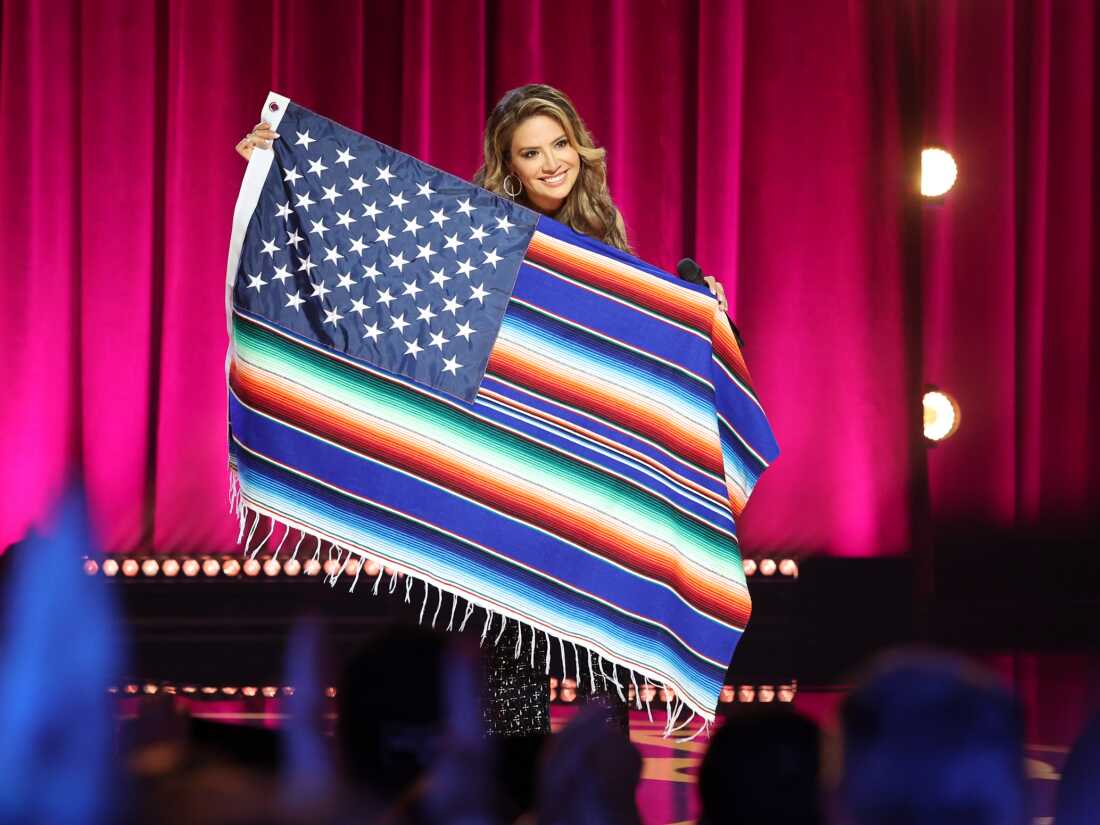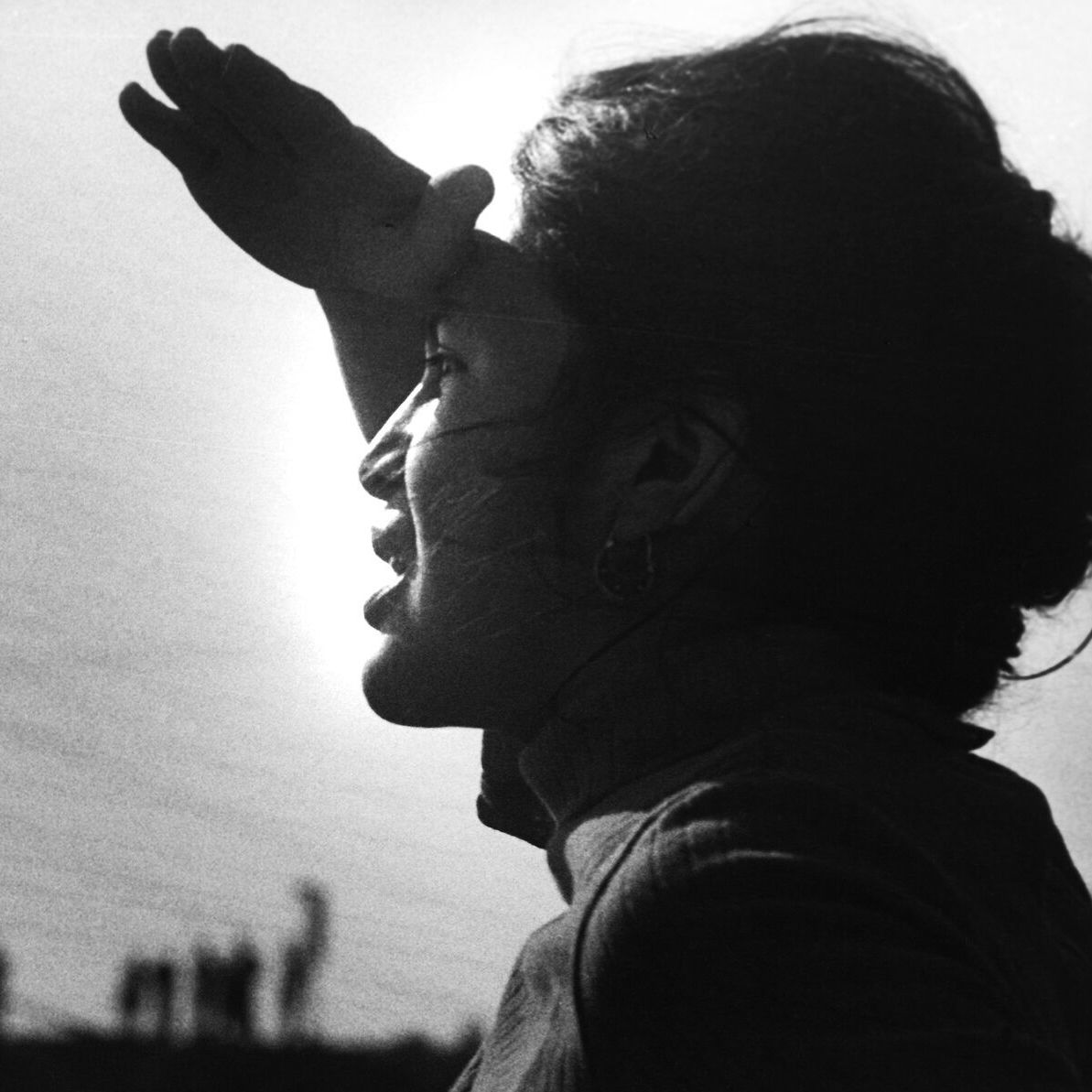Cristela Alonzo’s latest Netflix special is titled Upper Classy.
Lauren Smith/Netflix
hide caption
toggle caption
Lauren Smith/Netflix
Comedian Cristela Alonzo’s early years were marked by hardship, as she and her family spent the first seven years of her life living in a deserted diner in a small border town in South Texas. Her mother, a Mexican immigrant, had escaped an abusive relationship and was raising four children on a modest income of $150 per week from working at a local Mexican eatery.
Their living conditions were challenging: electricity was supplied through an extension cord stretched from a neighboring house, and during the cold months, a space heater served the dual purpose of cooking food and heating water for bathing.
Alonzo recalls, “My mom used to fill a 10-gallon pickle container with water from work. We’d scoop water with a small cup and pour it over ourselves to bathe during winter.”
Growing up in poverty meant constant responsibility for Alonzo. She often acted as her mother’s interpreter and managed household paperwork, since her mother lacked a bank account and had to pay bills by purchasing money orders at the post office.
“I was involved in budgeting and household chores my whole life,” Alonzo shares. “While my peers attended proms and school dances, I was busy wallpapering our home.”
Her passion for theater began in high school and continued into college, but family obligations forced her to pause her education twice to care for her mother and assist her sister with childcare. Eventually, Alonzo found her voice as a stand-up comedian, touring college campuses nationwide.
Her humor is deeply autobiographical, often exploring themes of social class, her upbringing, and contemporary political issues. In 2014, she created and starred in Cristela, a sitcom inspired by her life that aired for one season on ABC. Her Netflix comedy specials include Lower Classy, Middle Classy, and now Upper Classy.

Now based in Los Angeles, Alonzo reflects on how recent ICE raids in the city have reignited the fears she felt as a child. Her mother was undocumented until Alonzo was ten years old, and the threat of separation was a constant source of anxiety.
“We always hoped my mom wouldn’t be taken away,” she says. “Seeing the ICE raids today brought back memories I had buried – the fear of trying to shield my mother as a child.”
Key Insights from the Interview
Why her parents chose to immigrate to the U.S.
Alonzo explains that immigration is often driven by necessity rather than choice. “Most immigrants come here seeking opportunities unavailable in their home countries. If my parents had been able to build a good life in Mexico, they would have stayed. But they believed the U.S. offered better prospects for their children.”
Her mother’s courageous break from an abusive marriage
Raised in a remote Mexican village called El Zancarrón, Alonzo’s mother grew up in a strict Catholic household where arranged marriages were common, and women had little autonomy. Despite marrying through the Church and being unable to divorce, she left her abusive husband – who was often violent and had another family – becoming the first woman in her family to do so.

Alonzo describes her comedy as “giving visibility to a community that often goes unnoticed.” Lauren Smith/Netflix
toggle caption
Lauren Smith/Netflix
The anxiety of growing up with an undocumented mother
Her mother eventually obtained a resident alien card when Alonzo was about ten, but before that, the family lived in constant vigilance. In their border town of McAllen, Texas, border patrol agents were a common presence. To protect her mother, Alonzo and her siblings would create distractions in public places to avoid drawing attention.
“If we saw an agent at a restaurant, we’d pretend to throw a tantrum so my mom could quickly leave. We all played along because keeping her safe was our priority.”
Transitioning from theater to stand-up comedy
Alonzo initially dreamed of a Broadway career, but a voice coach told her that as a Latina, her opportunities would be limited to roles like West Side Story or Chorus Line. Facing rejection in theater auditions and criticism about her appearance, she moved to Los Angeles to pursue TV and film but struggled to find roles.
When her mother fell ill, Alonzo returned to Texas to care for her. After her mother’s passing, she found herself in Dallas, living with her sister and helping raise her nieces and nephews. Needing work, she took a job as an office manager at a comedy club, where she discovered stand-up comedy. “It felt like theater, but I could write about my own life. I started performing while grieving, sharing stories about my family, and that’s how my comedy career began.”
Adjusting to newfound financial stability
Alonzo reflects on the culture shock of having money after years of scarcity. “Access to healthcare was a luxury I never knew. I didn’t understand why people went to the doctor when they weren’t sick. When I finally had money, I could set up automatic bill payments, buy a car – things I never imagined possible as a child. I remain grateful for these basic comforts.”
Mentorship and activism with Dolores Huerta

Alonzo describes herself as a lifelong caregiver, naturally drawn to helping others. Her friendship with labor activist Dolores Huerta deepened through shared efforts in voter registration and outreach, often meeting with farmworkers in rural areas. Inspired by Huerta’s message of empowerment, Alonzo uses her comedy to humanize an often overlooked community.
“By sharing my personal stories on stage, I help people see the commonalities we share rather than our differences. I like to think I sneak education about my community into my performances without sounding preachy.”



















